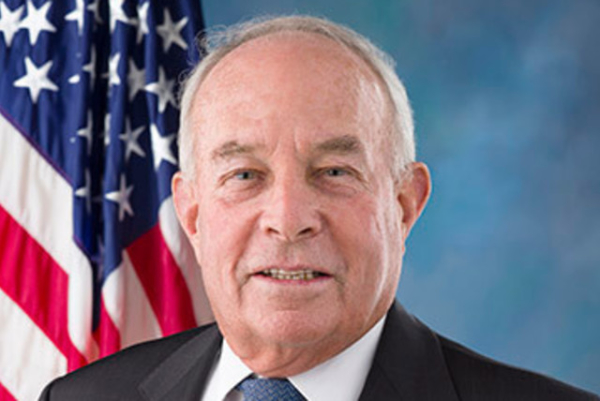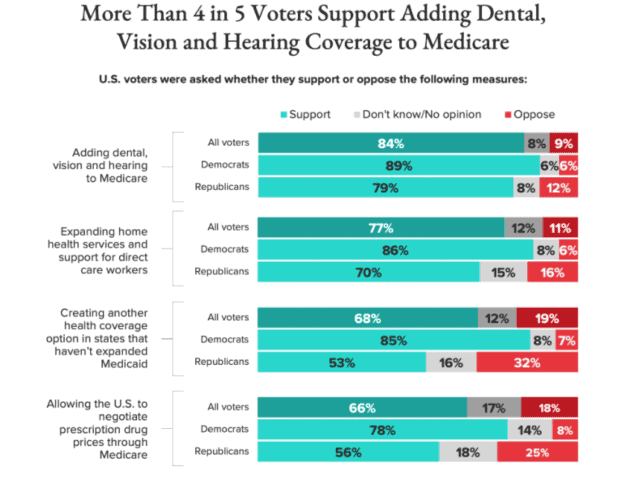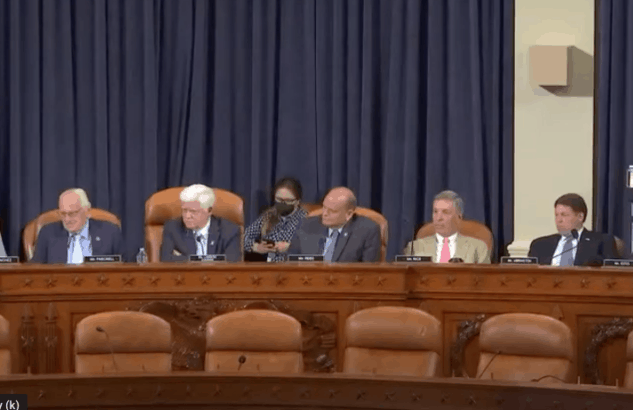Social Security Advocates Laud SSA Commissioner’s Firing

Social Security advocates are relieved that President Biden has fired Trump’s SSA Commissioner, Andrew Saul – although he insists his dismissal was illegitimate and vowed to stay on the job. That may be difficult now that the administration has taken steps to “off-board” Saul, including cutting off his access to the agency’s computers.
“I’m here to do the job,” Saul said from his home in Katonah, N.Y., where he had led the agency since the Coronavirus pandemic forced most operations to shift in March 2020 to remote work, “but I can’t do anything with the communications shut down.” – Washington Post, 7/13/21
The new acting commissioner, Kilolo Kijakazi, has taken the helm at the Social Security Administration until a permanent nominee is named. Advocates say that she has been briefed on the agency’s “top priorities,” including re-opening SSA field offices that have been shuttered since the pandemic began.



Acting SSA Commissioner Kilolo Kijakazi wins praise from Social Security advocates
Advocates for the seniors and people with disabilities lauded President Biden’s firing of Saul, a holdover from the Trump administration who worked to undermine Social Security. National Committee president and CEO Max Richtman issued this statement on Monday:
“The Social Security Commissioner should reflect the values and priorities of President Biden, which include improving benefits, extending solvency, improving customer service, reopening field offices, and treating SSA employees and their unions fairly. That was not the case with former Commissioner Saul and we look forward to President Biden nominating someone who meets that standard,” – Max Richtman, President and CEO, National Committee to Preserve Social Security and Medicare
Senator Sherrod Brown (D-OH), Chairman of the Committee on Banking, Housing, and Urban Affairs, vowed to work with Saul’s replacement to protect and expand the Social Security benefits that millions of Americans earned and rely on, improve administration of the Supplemental Security Income program, restore a productive relationship with the Social Security Administration’s employees, and more:
“Social Security is the bedrock of our middle class that Americans earn and count on, and they need a Social Security Commissioner who will honor that promise to seniors, survivors, and people with disabilities… I look forward to working with Acting Commissioner Kijakazi, who shares our commitment to protecting and expanding Social Security.” – Sen. Sherrod Brown, 7/12/21
Senator Brown detailed some of the actions that Commissioner Saul took that harmed Social Security beneficiaries:
*Making it even harder for older, severely disabled people to access the essential income they’re qualified to receive.
*Dramatically reducing due process protections for benefit appeals hearings by allowing SSA agency attorneys, instead of administrative law judges, to preside over appeals hearings.
*Providing beneficiaries with almost no relief from harsh requirements to repay extra benefits paid due to SSA action during the COVID-19 pandemic, through no fault of the individual.
*Throwing people off benefits by significantly increasing the number of disability case reviews resulting in an estimated $2.6 billion in benefit cutoffs.
According to Senator Brown, Saul and his former deputy commissioner David Black routinely attacked federal employees by imposing “harsh” terms on unionized SSA employees, vigorously enforcing Trump’s anti-union Executive Orders and eliminating telework for employees despite the health risks.
Saul’s treatment of the administrative law judges (ALJs) who adjudicate Social Security disability hearings drew the ire of the profession’s union. The union’s president, Melissa McIntosh, says that Saul’s dismissal is a relief for workers claiming Social Security disability benefits:
“Commissioner Saul authorized no-holds-barred union busting at SSA, as well as the dismantling of America’s safety net. We pledge our support for Acting Commissioner Kijakazi, and are committed to assisting her in strengthening and protecting the integrity of Social Security disability hearings.” – Melissa McIntosh, President, Association of Administrative Law Judges (AALJ)
Social Security advocates are praising acting commissioner Kijakazi, who holds a PhD from George Washington University and worked on policy at the Ford Foundation, Urban Institute, and the Center on Budget and Policy Priorities. They say she will bring “much-needed change, spirit and enthusiasm to SSA.”
This Is the Moment to Rebuild America’s Middle Class



National Committee president and CEO Max Richtman recently urged in Common Dreams that we rebuild America’s middle class after decades of erosion. He credited President Biden for putting forth proposals to do just that — specifically his American Jobs Plan and American Families Plan. But both proposals have run headlong into Republican obstructionism on Capitol Hill.
“Despite the fact that 60 percent of U.S. voters support [the President’s infrastructure proposals], Senate Minority Leader Mitch McConnell (Ky.) recently said Democrats can expect zero’ support from Republicans in Congress.” – Ms. Magazine, 7/6/21
While advocates of bipartisanship were cheered by an infrastructure deal struck between the White House and a group of ten Senators from both parties, that proposal (which is currently being crafted into actual legislation) falls far short of the President’s ambitious plans to build back the economy in a more equitable way. It is alsouncertain whether Senate GOP leader McConnell will encourage his members to support the bi-partisan infrastructure bill.
Meanwhile, Congressional Democrats are moving forward with a budget process through which the President’s broader proposals to help working Americans could pass on a party-line vote this fall.
Here is Max Richtman’s complete opinion piece in Common Dreams, originally published in early July:



The coming of Independence Day is an opportunity to assess the American Dream of equal opportunity and middle-class status. Unfortunately, for more than four decades, the middle class has been squeezed. Today, too many hard-working Americans find themselves financially treading water or falling behind. And the increased pressure on the middle class has taken more than a financial toll. According to the nonpartisan Brookings Institution, “Even the physical and mental health of the American middle class is getting progressively worse.”
President Biden’s election gave many Americans hope that the middle class would finally catch a break. “The middle class is in trouble,” said candidate Biden in 2020. “It’s not just their perception. They are in trouble.” Indeed, the President’s American Jobs Plan and American Families plan were designed to give everyday Americans a boost after years of income inequality and rising costs, exacerbated by the COVID recession. But efforts to fortify the middle class have run into a wall of obstruction from many Republicans who prefer to continue the status quo of enriching the wealthy and large corporations at the expense of everyone else.
If the middle class is the foundation of our economy (and the quintessence of the American Dream), then it is a sagging foundation that badly needs to be rebuilt. The structural problems facing the once-thriving American middle class are formidable. The decline in middle class prosperity parallels the ascendance of Reaganomics in the early 1980s, including tax policy favoring the wealthy and corporations, excessive deregulation, and the weakening of labor unions, aggravated by the soaring cost of everything from education to health care.
Whereas 50 years ago it took only one income earner for a family to enjoy a reasonable middle-class living, now it takes two. In post-war America, middle class workers once were able to look forward to a financially secure retirement. But difficulty saving for retirement and the scarcity of employer-provided pensions have left too many of today’s retirees struggling to make ends meet, even with their hard-earned Social Security benefits. Seniors who ‘don’t want to be a burden’ regrettably find themselves in need of financial support from their adult children.
This is a raw deal for American workers whose productivity has risen but whose share of the economic pie is practically frozen, while corporate profits and CEO compensation soar. Without the comprehensive structural change that President Biden proposes (including better, higher paying jobs, stronger labor unions, a tax code that favors workers over the wealthy, and expanded Social Security and Medicare benefits), the game will remain rigged in favor of the ultra-rich and powerful.
Polling suggests that proposals to build a fairer economy (or to “Build Back Better,” as President Biden says) enjoy widespread public support, including the President’s expanded vision of infrastructure, paid for by higher taxes on the wealthy and corporations. Fifty-seven percent say the very wealthy should pay more in taxes than they do now, which could help fund proposals to boost the middle class. More than half of middle-class respondents in a recent Pew poll say the President and Congress should do more to reduce income inequality.
The President is doing his part. But Congress, elected to respond to constituents’ needs, must do more. Instead, most Republicans have chosen to follow Minority Leader Mitch McConnell down a path of obstructionism for partisan gain. Senator McConnell, who in 2009 famously pledged “to make (Obama) a one-term President,” has now promised to block President Biden’s entire agenda, no matter how important it may be to the American people.
During the Trump presidency, Republicans blocked reforms that would have helped everyday Americans—especially the House-passed H.R. 1 (voting rights), and H.R. 3 (prescription drug pricing reform). Worse yet, they enacted the Trump/GOP tax cuts of 2017 mainly benefitting the wealthy and large corporations on the empty promise that it would create jobs. Next, prominent Republicans suggested cuts to Social Security and Medicare to help close the deficit created by their reckless tax cuts. Meanwhile, the GOP repeatedly tried to strip away health coverage from tens of millions of Americans through repeal of—and legal challenges to—the Affordable Care Act.
Time and time again, Republican leaders have proven that they favor the interests of their rich and powerful donors over those of the middle class. This is due in no small part to the excessive political power of monied, right-wing interests. American oligarchs like the Kochs and Mercers—not to mention Big Pharma, the insurance industry, the U.S. Chamber of Commerce and others—spend billions of dollars electing politicians who obstruct progress and perpetuate the status quo of economic inequality.
In their study, Winner Take All Politics: How Washington Made the Rich Richer and Turned Its Back on the Middle Class, Yale University political scientists Jacob Hacker and Paul Pierson argue that “the high incomes enjoyed by an increasingly rich elite have led to a situation where America’s public officials have rewritten the rules of American politics and the American economy in ways that have benefited the few at the expense of the many.” The House-passed ‘For the People’ voting rights act (H.R. 1) would go a long way toward restoring political power to everyday people, but Republicans led by Senator McConnell have blocked even so much as debate on the bill in the Senate.
As a nation, we can’t move forward unless everyone has an opportunity to thrive. That means the opportunity to earn a living wage. It means affordable, accessible health care for all Americans. It means access to education and training for everyone. It means having enough income to save for retirement, free from anxiety about falling into poverty, being isolated at home or stuck in a long-term care facility—or being a burden to family members.
Equally as important, the middle class cannot retire with security or dignity without Social Security, Medicare, and Medicaid. We must strengthen and expand these crucial social insurance programs, rather than cut benefits as many conservatives have urged. Today, seniors who worked hard their entire lives and earned their retirement benefits still do not receive hearing, vision, and dental coverage through traditional Medicare. Social Security cost-of-living adjustments (COLAs) do not keep pace with increases in seniors’ true living expenses. Sky-high prescription drug prices force too many retirees to choose between medicine and other essentials like food and rent.
President Biden has called for improvements in all of these areas. Democrats in Congress have introduced (or are working on) legislation to expand Social Security and Medicare and to finally reduce prescription drug prices (principally by allowing Medicare to negotiate prices with Big Pharma). Bipartisan agreement on an infrastructure plan provides a glimmer of hope that the usual gridlock on Capitol Hill can be broken, though Democrats may have to push through other agenda items to help the middle class on party-line votes through the reconciliation process.
As Congress approaches its July 4th recess, let’s recommit ourselves to independence from widespread financial insecurity, independence from the inability to afford health care and prescription drugs, and freedom from anxiety about retirement for all Americans who have worked hard to join or remain in our country’s vast middle class. Congress must represent everyday people over powerful interests. It’s time for all Senators and Representatives to unite around an agenda that truly rebuilds our beleaguered middle class.
Max Richtman is president and CEO of the National Committee to Preserve Social Security and Medicare.
Will Seniors Finally Get Dental, Vision and Hearing Coverage from Medicare?



There appears to be new momentum on Capitol Hill for expanding Medicare. The most urgent expansion is adding dental, hearing, and vision coverage, because, as we have long argued, seniors need health care from the neck-up, too. Right now, millions of seniors forgo proper dental, hearing, and vision care because they simply can’t afford it. Neglecting this basic care has profound health consequences, which ultimately harms seniors and costs Medicare even more in the long run.
One thing is clear: the public wants Medicare expanded. According to a new Morning Consult poll, 84% of voters support adding dental, vision and hearing coverage to traditional Medicare. That number includes 79% percent of Republicans. Clearly, there is immense bipartisan support among everyday Americans for giving seniors these crucial coverages.



Morning Consult poll
Unfortunately, GOP leaders in Congress – chiefly, Senate Minority Leader Mitch McConnell – have opposed this commonsense expansion. McConnell has smeared the proposal as “adding an entitlement” and claims the country cannot afford it. Of course, Republicans made no such claim when they gave the wealthy and large corporations a $2 trillion tax break in 2017. Because the party apparently favors wealth-care over seniors’ health care, there likely are not ten Republican votes (enough to break a Senate filibuster) in favor of Medicare expansion.
In the face of GOP obstruction, Democrats are coalescing around a plan to enact Medicare expansion on a party-line vote through the budget reconciliation process. This is the same tactic they utilized in March for passing President Biden’s COVID relief plan. The Democrats would likely pay for expanding Medicare with savings achieved through prescription drug pricing reform. The House-passed Elijah Cummings Lower Drug Costs Now Act (H.R.3) would save Medicare some $450 billion over ten years, mainly by allowing the program to negotiate prices directly with Big Pharma.
The Morning Consult poll indicates that a majority of voters across party lines support Medicare drug price negotiations. Republicans in Congress have called this commonsense proposal “Socialism,” even though the V.A. has been negotiating prices with drug-makers for years – and realizing significant savings in the process. According to one analysis, Medicare could save some 40% in drug costs if it were allowed to negotiate as the V.A. does.
For the Democrats’ strategy to succeed, both Medicare expansion and prescription drug price reform would have to be enacted through budget reconciliation in the House and Senate. However, there is no guarantee that moderate Democrats in the Senate will support all of the drug pricing provisions in the current House bill. “It may have to be watered down somewhat to attract unanimous Democratic support,” says Dan Adcock, Director of Government Relations at Policy at the National Committee.
If drug pricing legislation is weakened in the budget reconciliation process, there will be less savings to the Medicare program. According to Adcock, that may limit the scope of dental, hearing, and vision coverage that can be added to Medicare. In fact, one or more of those coverages may not make it into the final legislation if there aren’t sufficient Medicare savings to pay for them.
“It’s possible we will see Medicare expansion enacted by the end of the year. It depends on how the Democrats are able to finesse this process. I wouldn’t bet the farm on it, but there’s a decent chance we’ll get something.” – Dan Adcock, NCPSSM Director of Government Relations and Policy
The first step in the process will be the passage of a budget resolution, which Adcock says could happen when Congress returns from its July 4th recess. However, he expects that the budget reconciliation process will not begin before this fall. The House and Senate would then vote on the reconciliation legislation. “It’s an important goal, but a long haul,” says Adcock.
Struggling Seniors Say Social Security Benefits Must be Expanded



Members of Congress heard from some genuine experts on Social Security – older Americans who have to survive on their benefit checks each and every month. The seniors appeared via video at a hearing of the House Ways & Means Social Security subcommittee, chaired by Rep. John Larson (D-CT). Congressman Larson is the primary force behind Social Security reform on Capitol Hill, championing the strengthening of the program and expansion of benefits. His Social Security 2100 Act would do both, though he reportedly is reworking the legislation to better align with President Biden’s proposals in this area.
The witnesses at the hearing – all retirees from different parts of the country – spoke earnestly and often passionately about the challenges of making ends meet on their current Social Security benefits, while expressing gratitude for the program which has kept seniors out of poverty for more than 85 years.
Julian Blair
Retired, U.S. Military
Washington, D.C.



Elba Lopez
Retired Seamstress
Philadelphia, PA



“I am a widow and I rely on Social Security as a major source of income. But it doesn’t pay enough for electricity, gas, food, rent, insurance and clothing. I’m lucky that my daughter can help me financially, but I don’t want to be a burden. An increase in my Social Security income would allow me to be more independent. It would give me peace of mind, knowing that I could meet my basic needs after all those years of working.”
Cora McDonnell
Retired Shipping Clerk
Seattle, WA



“My husband passed away in 1994. I also was laid off after 14 years on the job at Airborne Express. Without Social Security widow’s benefits, I could not have survived. I would have been homeless and unable to take care of my son, who suffers from ulcerative colitis. Social Security paid the bills, put food on the table for me and my son and a roof over our head. It was essential to me as a widow and single mother. I do wonder, though, why benefits have not changed in the past 50 years.”
Kitty Ruderman
Retiree
Queens, NY



“Social Security is by far the bulk of my income. I need every penny to make ends meet, and even that isn’t enough. My rent alone exceeds my monthly Social Security payment. In previous years, I could supplement my retirement income by taking on extra work, but that has become increasingly difficult due to my crippling arthritis. This has left me even more reliant on Social Security and even more concerned about the future of the program. I urge Congress to ensure Social Security stays strong for generations to come.”
The witnesses’ testimony buttressed Rep. Larson’s argument that Social Security benefits must be boosted to meet retirees’ actual needs, including a fairer formula for calculating cost-of-living adjustments (COLAs). He pointed out that the average Social Security benefit of roughly $18,500 a year is only slightly above the federal poverty line, and that some people’s benefits are below it. “Who could live on that?” he asked.
The Congressman emphasized the importance of Congress taking bold action on Social Security now, instead of “kicking the can down the road.” Benefits have not been increased in 50 years, Larson said. And the last time that Social Security was strengthened, he reminded the committee, was in 1983.
Ranking Republican Tom Reed (R-NY) called for more incremental measures to establish bipartisan “trust” on the issue – and to lay a foundation for major changes later. Committee member Rep. Tom Rice (R-SC) said that both Republicans and Democrats want “to enhance benefits for all retirees,” yet Rice and many other GOP members of Congress cosponsored a bill from the subcommittee’s former Chairman, Rep. Sam Johnson (R-TX), that would have raised the retirement age to 69, a drastic benefit cut.
Other Republicans have called for “entitlements” to be “reformed” (code word for ‘cut’) in the wake of the deficit-swelling Trump/GOP tax cuts, even though Social Security does not contribute to the federal deficit.
Congressman Larson said a vote on comprehensive Social Security legislation is “long overdue.” His Social Security 2100 Act would extend the solvency of the trust fund until nearly the end of the century, boost benefits across the board by 2%, and provide for a more generous COLA formula. “There is an opportunity to have people vote and be counted and show what they stand for,” he said. “That would be a real profile in courage.”
Supreme Court Ruling a Victory for Older Americans
The National Committee to Preserve Social Security and Medicare applauds today’s Supreme Court ruling leaving the Affordable Care Act in place:
“Millions of older Americans can breathe a sigh of relief with the Supreme Court’s decision to uphold the Affordable Care Act. The justices’ decision protects enhancements in health coverage for ‘near seniors’ aged 55-65 and Medicare beneficiaries, as well. The Affordable Care Act limits the premiums insurers can charge based on age, protects patients with pre-existing conditions, and improves Medicare coverage – including a broad array of preventative services with no out-of-pocket cost to seniors and phasing out the ‘donut hole’ in Part D prescription coverage. The justices rightly turned back this latest attempt by conservatives to strip tens of millions of Americans of health coverage. With the ACA safe from legal challenges for now, let’s redouble our efforts to expand affordability and access to health care for the near seniors, seniors, and all other Americans who need it.” – Max Richtman, President & CEO, National Committee to Preserve Social Security and Medicare


